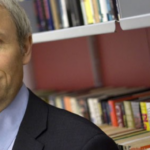Consumer and business confidence in the UK has declined following Labour’s recent budget, which includes significant tax hikes that have sparked concerns about rising costs, hiring prospects, and the country’s long-term economic growth.
Recent surveys show growing pessimism among British households and the services sector, undermining the government’s goal to boost economic growth to the highest levels in the G7 over the next five years. The British Retail Consortium (BRC) reported that, in the wake of the budget announcement, consumer confidence dropped, with more households expressing concern about the economy than in previous months. This has led to little change in household spending, despite the upcoming holiday season, with many consumers maintaining a cautious approach to their finances.
The BRC’s survey found that households were only marginally more optimistic about their personal financial situations between October and November. The overall sentiment regarding the economy fell by two points, reaching -19, while savings intentions and spending plans remained largely unchanged.
In a separate survey, the Confederation of British Industry (CBI) noted a sharp drop in confidence among businesses in the service sector, which accounts for about three-quarters of the UK economy. This marks the steepest decline in business optimism in two years, reversing a nine-month period of improving sentiment. Service-sector companies are particularly concerned about rising wage costs, which are expected to increase further with the government’s planned hike in employer national insurance contributions from April 2024.
Alpesh Paleja, interim deputy chief economist at the CBI, described the outlook as “not a pretty picture,” citing weaker hiring intentions and growing cost pressures as key concerns. The national insurance increase, which is expected to generate between £16 billion and £20 billion annually for the government, is seen as a major factor contributing to the negative sentiment.
Meanwhile, the Recruitment and Employment Confederation (REC) warned that the national insurance rise could slow the recovery in hiring, which had shown signs of improvement earlier this year. The REC’s latest survey found that hiring confidence surged in the months leading up to October, but the impending tax increase—particularly the rise in contributions for lower earners—could dampen business optimism going forward.
Helen Dickinson, chief executive of the BRC, also highlighted the impact of the tax hikes on the retail sector, estimating that national insurance increases could add £7 billion in costs. She urged the government to address the issue by ensuring the upcoming changes to business rates, set for 2026, provide meaningful relief for retailers.
As the UK grapples with these economic challenges, experts are calling for targeted government support to ensure that businesses can weather the rising costs and that hiring continues to recover.









